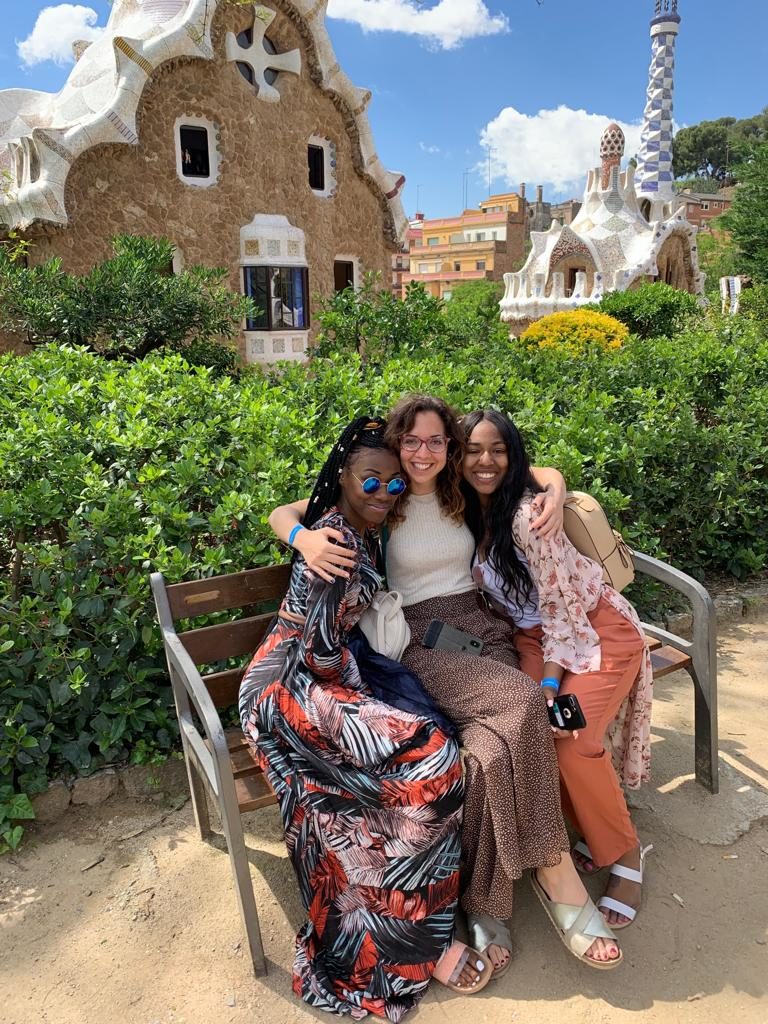Students and their families often have a lot of questions before studying abroad or applying to a program. To help you understand the application process and help you prepare for a sojourn overseas, we have put together some guides of some of the most Frequently Asked Questions that we hear from students and their families.
Prospective Students
General information for prospective students about SSA and studying abroad. Program dates and application deadlines, funding and who can apply.
For Parents and Guardians
What does SSA do to promote safety while my student is studying abroad?
The security and well-being of our students has been of paramount concern throughout the 40 year history of SSA programs. We understand your concerns as parents and faculty about safety and communication when students are so far away. That is why SSA maintains a comprehensive set of Safety Guidelines to promote health and safety on all of our programs. SSA also arranges and requires health insurance in the host country for all participants to ensure they are adequately protected if medical needs arise.
An important part of the study abroad experience is to learn how to be independent, and students on SSA programs are expected to make good decisions to promote their own safety. At orientation, Resident Directors and staff review important safety tips with students to help guide students to make smart decisions while exploring their host city.
The Resident Director and support staff of each program monitors all aspects of students’ well-being throughout their stay abroad. All participants are made fully aware of the services SSA provides so that they know what to do in the event of a problem. SSA is also in regular communication with Spanish, Argentine, Puerto Rican, and Cuban civil authorities and with U.S. Embassy officials abroad. In the unlikely event of a severe emergency in the host city, appropriate steps will be taken to arranged the safe return home of all SSA students.
If my student calls with a problem while abroad, who should I contact? What should I advise my student to do?
If your student encounters a serious problem while abroad, the first people he/she should contact are the members of the SSA staff in the host city. SSA personnel abroad are best-equipped to handle any major issue. If he/she does call home with a problem, parents should encourage him/her to get in touch with the Resident Director of their specific program for assistance. All students are provided with a 24-hour emergency number so that they can always contact a member of the staff in their host city.
What can I expect my student's experience to be like abroad?
Although everyone’s experience studying abroad is different, most students find that they face many challenges and rewards from studying abroad. Immersion into another culture requires students to step away from their comfort zones. Thus, there will most likely be days when your student will be “so happy to be living abroad” and other days when they will be unhappy or frustrated with the experience. This a normal reaction to culture shock and it often passes as students become accustomed to living in a new place. If you are concerned about your student, encourage them to talk to an SSA staff member or Resident Director. They have been trained to help students to get through this process.
Check out the Handbook for your student’s program location. (Handbooks are available by mail upon request.) Also, encourage your students to read their student handbook and do research on their host country before leaving. Learning about cultural norms before departure can help to ease the transition to a new place.
How do I contact my student when he/she is abroad?
If you are sending any regular USPS mail to your student, you should send it to the local SSA Address. If there is an emergency, you can contact the appropriate Emergency Contact Number. In each program location, students have both email and internet access. Computer labs at the host universities and at the Center in Seville maintain regular computer lab hours.
When making telephone calls from the U.S. to your student’s host country, please bear in mind any time changes. Your student’s host family will have a home telephone. However, the home’s telephone is restricted to receiving calls of short duration. Placing calls from the home phone is not permitted unless absolutely necessary. Please do not call the student’s home before 10am and after 10pm (local time for your student). Keep in mind that the primary communication will most likely be through WhatsApp or Facebook Messenger.
Your student may opt to get a cell phone while abroad.Please note that international calls, including calls to the United States, can become expensive very quickly. It is often a good idea to talk to your student before they go abroad on limiting the amount of contact home. In addition to saving money, limiting the contact home will help them to spend more time experiencing their host country.
Can I visit my student while he or she is abroad?
Parents can certainly visit their students while they are abroad, just as long as any visit does not interfere with the student’s class attendance and academics. Family members may visit their student independently, in which case they will be responsible for their own individual travel and accommodation arrangements. Please note that it is the policy at SSA that visiting friends and family members may not stay with the host family or at the student residence. Families are encouraged to communicate with their students to decide the best time to visit.
What can I expect when my student returns from studying abroad?
Again, while every student’s experience is different, most students find that they experience “reverse culture shock” when they return from their time abroad. After the initial euphoria of returning home, your student may experience feelings of frustration, anger, alienation, loneliness, disorientation, and helplessness and not understand exactly why. As with all transitions, your student will gradually readjust, often with a new understanding of the world and self. To help your student with this adjustment, learn more about reverse culture shock and encourage your student to find ways to integrate their experience into their life back home.
What is SSA?
SSA is an educational organization dedicated to promoting in-depth understanding of Spanish-speaking countries for our students, through specifically designed and academically rigorous university-level study abroad and cultural travel programs. SSA has academic university-level programs in:
- Seville, Spain
- Alicante, Spain
- Barcelona, Spain
- Córdoba & Patagonia, Argentina
- Havana, Cuba
- San Juan, Puerto Rico
- Panama City, Panama
For program and course information, click on “Destinations” in the top menu and read about our programs by country.
Why SSA?
At SSA, we anchor our programs in academic excellence and cultural authenticity, with a strong focus on Spanish-language acquisition. We offer three program models, designed to fit almost any student’s academic needs while studying abroad. In all our programs, we offer a broad curriculum over many disciplines. We also offer a professional development course in education.
Students who study abroad with SSA also benefit from a higher level of support throughout the study abroad process, including: application and pre-departure support, on-site Resident Directors and support staff, and individual assistance with academic, homestay, and cultural adjustment.
When are the program dates and application deadlines?
You can find the most up-to-date information on SSA program dates and application deadlines in each program tab.
What type of funding is available for study abroad? Does SSA offer scholarships?
Who can apply to study abroad with SSA?
Our programs are designed for students who will apply the credit earned in Spain, Argentina, Puerto Rico, or Cuba towards a degree in an American or Canadian college or university. Short-term courses are especially open to a wide variety of students, and several summer courses can be applied towards graduate credit in our Seville location. Contact SSA at info[at]ssabroad.org or 413-256-0011 if you have any questions about which program is right for you.
Can high school students attend SSA programs?
Yes. While our programs are generally designed for students who are currently enrolled in a college or university and are seeking to obtain undergraduate credit, high school students may also attend our programs, as long as they meet admission requirements/pre-requisites. A student should be at least 16 years of age to enroll in a SSA program independently. For more information, please see Academic Opportunities for High School Students.
Are there SSA programs designed for graduate students? Can credit I receive studying abroad be used for graduate credits?
In order to receive the stipulation “Graduate Credit” on the SSA transcript, students must be currently enrolled in a graduate program, which must approve the transfer of graduate credit. Students must complete all coursework at a distinguished level, and submit a research paper of 12-20 pages on a topic selected in consultation with the professor of the course. There is an additional fee of $60 per credit, to be paid to the U.S. office of SSA by the final payment deadline. The request for graduate credit must be received and approved by SSA before the student attends the program. Graduate credit is available ONLY during our Seville Summer Program for specific courses annotated on the summer course list.
Can I study in Spain, Argentina, Puerto Rico or Spain if I am not a student?
Yes. In addition to our broad curriculum, we have a Professional Development course in education, which may be of special interest to professionals looking to develop their Spanish and intercultural skills. While our programs are generally designed for students who are currently enrolled in a college or university and are seeking to obtain undergraduate credit, non-students do attend our programs. For those who are not currently students, but wish to gain transferable credit for their studies abroad, the option to do so is available through one of our affiliated degree-granting institutions.
I haven’t taken Spanish since high school; can I still apply?
Absolutely! We offer some programs where there are no language prerequisites. If you wish to apply to a program with a higher Spanish requirement, your Admissions Advisor will need to know how many courses you have taken in high school and the highest course level in addition to your background in exposure to the Spanish language (heritage or native speaker, for example). Your Admissions Advisor can send you a link to a placement exam to give us an idea of what level you are currently in. Depending on the results and what program you would like to participate in, you may be required to meet with your Spanish department head so they can assess your level.
What are the prerequisites to attend a SSA program?
It depends on the program. Each program will list the GPA and language requirements. In reflection of SSA’s dedication to academic excellence, we require that students have a minimum 3.0 GPA in Spanish coursework. Other pre-requisites (i.e previous coursework, required credits) differ according to each program and course level to which you are applying.
If my Spanish GPA is lower than the requirement, can I still apply?
Yes. It is worth keeping in mind that other portions of the application are taken into consideration when reviewing an application for acceptance, so a Spanish GPA slightly below a 3.0 does not exclude you from consideration.
If you are really concerned about your grades and/or GPA, speak to your Admissions Advisor on how to proceed. It may be advisable to have a teacher write a specific recommendation regarding your academic promise. It is also helpful to write a letter explaining why your GPA is lower.
Will I need a passport or a visa to attend a SSA program?
To travel abroad, you need a passport valid for six months after your program end date. If you do not have a valid passport, you must apply for one immediately. It can take up to six weeks to receive your passport, so apply for it right away. If the start of your program is less than 90 days away, you will have to pay for expedited service.
If you are abroad for more than three months with a U.S. passport, you are REQUIRED by Spanish and Argentine law to obtain a student visa. Semester and Academic Year students are required to obtain a student visa; January and Summer Term students do not need a visa. Make sure that you follow the visa instructions from SSA and your local consulate carefully. You can consult this handy website to see how powerful your passport is and if you need a visa to enter a country beforehand.
I want to do an internship. Are there any offered?
Yes. SSA offers a limited number of opportunities to undertake a combined internship and study program. This option provides you with an excellent opportunity to take advantage of your stay by accepting a unique learning challenge. You gain work experience and explore a particular field from the viewpoint of another culture. See Internships & Service Learning Programs for details.
Financial Matters and Predeparture
The post-acceptance process for students including visa information and travel arrangements.
What type of funding is available for study abroad? Does SSA offer scholarships?
There are many scholarships and grants available to students who wish to study abroad. Check with your Study Abroad Office or your advisor to research the resources available to you. All prospective students applying to an SSA program are eligible to apply for an SSA Merit-Based or Diversity scholarship. Please see our Scholarships page for more information.
Can my non-refundable program deposit be deferred until my financial aid is disbursed?
No. The SSA deposit confirms your enrollment. If we do not receive a deposit, we cannot hold a space for you in our programs.
My financial aid will not be available by the payment due date, can my payment be deferred?
Yes. Please contact SSA as soon as possible to obtain the appropriate paperwork and instructions to defer your payment.
What forms of payment does SSA accept?
SSA accepts payments via check, money order, and/or credit card. To make a credit card payment, please visit the View/Pay Bill stage of your online account.
To whom should I make a check/money order payable to?
All checks and money orders should be made payable to “The Center for Cross-Cultural Study” or “CC-CS.”
How do I know whom to pay for my study abroad program?
Your Billing Statement will appear in the View/Pay Bill Stage of your online account if you are required to pay SSA directly for any portion of your program costs. The Billing Statement will clearly outline each program fee and the amount. If the View/Pay Bill stage contains only partial fees, or no fee information, please contact your home institution to coordinate payment.
What is the SSA Payment and Refund Policy?
Penalties for withdrawal from a SSA program are assessed based upon the length of time between notice of your withdrawal and the start of the program. Unless SSA cancels the program, the deposit is always non-refundable.
In addition to the deposit forfeiture, withdrawal from an SSA program incurs the following penalties:
- 25% of program fee for withdrawals between final payment due date and 30 days prior to the start of the program.
- 25% of the room and board fee and 100% of the tuition, study tours, general education, and orientation fees for withdrawals between 29 days prior to the start of the program and 1 day prior to program start.
There is no refund for any portion of the program on or after the program start date.
Should SSA cancel a program before the start date, we will apply any payments made (including the deposit) to a future program, or we will reimburse the full amount paid, including the deposit. There will be no refunds in case of program interruption once a program has started; instead, provisions will be made to ensure that students are able to complete their credits, such as: students will be accommodated in their residence abroad and tuition will be delivered virtually with assistance by SSA professors and staff.
In the case of homestays, SSA may change unsatisfactory lodgings but will not refund any portion of room and board fees after a student’s arrival at a home. If students find their housing to be unsatisfactory, they should notify the program’s resident director or staff immediately.
I have my own health insurance, so do I have to pay for SSA’s health insurance?
Yes. SSA provides health insurance for all students as part of your program fees. This health insurance is mandatory for all students, whether you have insurance at home or not. The only exception is for our students participating in our Puerto Rico programs. Please see Health Insurance and Medical Care for more detailed information.
What is the Pre-Departure Process?
If you have been accepted by SSA, there are a number of matters that will need to be taken care of before you go on your program. In order confirm your enrollment in an SSA program, you will need to complete these tasks; many can be taken care of using your Online Account. You will also receive an acceptance packet via e-mail that will provide important information about preparing for your program.
What is my Online Account?
All students studying with SSA have an online account. To access your account, enter your username and password, and then click the “Login” button in the top-right-hand corner of the web page. If you have forgotten your password, you may request a new one on the login page.
What do I need to complete and send to SSA before going on my study abroad program?
You will find specific instructions in your acceptance packet and in your online account, so make sure to go through this information carefully.
Will I need a student visa?
Visa requirements vary by program location and length. However, if you do need a visa it is imperative that you apply for the visa as soon as possible! See our visa page for more information.
What is acceptable for my headshot photo? Where do I send it to? Does it have to be digital or can I mail in a photo?
For identification purposes, SSA requires that you email a clear and appropriate passport-sized headshot (175px X 175px or 2in.X 2in.) in JPG format to info[at]ssabroad.org.
What do I need to know when making travel arrangements?
You can find the most up-to-date travel information for your program in your acceptance packet. The link to your packet is in your acceptance e-mail. You will need to enter your arrival information in your Online Account as part of the Post-Acceptance Process. SSA needs to know the exact time, date, airline name, and flight number of your arrival in your host city. Make sure to fill out the “Arrival Information” form in your Student Account or email your arrival information to info[at]ssabroad.org..
Living Abroad
What will living in another country be like?
Although everyone’s experience studying abroad is different, most students find that they face many challenges and rewards from studying abroad. Read your Student Handbook to find detailed information on cultural shock, cultural norms, and practical tips and information.
When do I receive information on housing? How is placement determined and/or my family chosen?
Housing information is determined before the start of the program and is generally available about a week before the students leave for their program destination. Students will receive an email from the on-site staff. All host families must first undergo an interview process with SSA staff before being selected to provide housing. Students fill out an evaluation at the end of each program which SSA staff takes into consideration during the next housing cycle.
Will SSA have specific information on my host family?
On-site staff will email each student with information on their host family, in addition to their home address, email address, and phone number. After receiving this information, students are encouraged to contact their host families independently to introduce themselves. To prepare for living in a host family, read the Homestay section of your Student Handbook.
My application included a housing questionnaire. Will all my preferences be met?
While our Housing Coordinators from each location try to accommodate students’ requests, we cannot guarantee that all preferences will be met. On Seville programs (for example), there are very few opportunities for students to be the only SSA student in a home, so these placements will be given on a first come first serve basis. Housing in the Seville student residences is on a space-available basis.
In the interest of meeting your goal of cultural immersion, it is the policy of SSA not to pair students from the same school in the same homestay during our semester and academic year programs. We encourage students to set aside American friendships temporarily and develop a special relationship with Spanish-speaking friends, family and culture. If you indicated on your housing questionnaire that you would like to live near a friend, our Housing Coordinator will do what she can to place you accordingly.
Should I bring a gift for my host family?
It is always a friendly gesture to bring your host family a small gift. This does not have to be something fancy or expensive. Typically students bring a small gift which reminds them of home. It is up to the individual student to decide what is best to bring.
What types of internships are available while I am studying abroad?
Internships are available while studying abroad in several different disciplines and are organized on a case-by-case basis in Seville and Alicante, Spain; San Juan, Puerto Rico; and Córdoba, Argentina. We do not offer internships in Barcelona, Spain; Havana, Cuba; or Panama City, Panama. Students must first apply for an internship, using a separate internship application which includes a resume as well as a cover letter. If an internship application is approved, SSA staff then evaluates the needs and goals of the student and places them where they will be successful and gain experience in their field of choice.
Should I bring my laptop computer with me?
If you own a laptop computer, you may wish to bring it with you overseas so that you can use it for your studies abroad just as you do at home. However, you will obviously want to take extra steps to protect you computer against theft or damage. Naturally, you should never leave a laptop unattended in a public location.
Will there be wireless internet at the Center/host university?
Wireless internet is available in select locations at each of the centers in Spain, Argentina, and Puerto Rico where SSA currently maintains active programs. In Cuba, you will need to purchase Wi-Fi internet cards at about $2 for one hour. Staff in each site will be able to provide useful information regarding where wireless signals are most easily accessible.
Will I be able to participate in sport activities? Are there opportunities to play a musical instrument?
Yes. As is probably the case in your home city, there are a variety of local community groups and organizations dealing with sports and music in each of the cities where SSA programs take place. If you are studying at a host university with SSA, you will have access to all of the resources available to students at the university.
SSA personnel abroad can provide a wealth of information regarding these possibilities and students are encouraged to discuss their interest with the staff upon their arrival to investigate further options. If you have questions about a specific type of sporting or music organization overseas, you may contact our U.S. office to see what information we are able to provide prior to your departure.
SSA Payment and Refund Policy
Penalties for withdrawal from a SSA program are assessed based on the length of time between notice of your withdrawal and the start of the program. Unless SSA cancels the program, the deposit is always non-refundable.
In addition to the deposit forfeiture, withdrawal from an SSA program incurs the following penalties:
- 25% of the program fee for withdrawals between the final payment due date and 30 days before the start of the program.
- 25% of the room and board fee and 100% of the tuition, study tours, general education, and orientation fees for withdrawals between 29 days before the start of the program and 1 day before the program starts.
There is no refund for any portion of the program on or after the program start date.
Should SSA cancel a program before the start date, we will apply any payments made (including the deposit) to a future program, or we will reimburse the full amount paid, including the deposit. There will be no refunds in case of program interruption once a program has started; instead, provisions will be made to ensure that students can complete their credits, such as students will be accommodated in their residence abroad and tuition will be delivered virtually with assistance by SSA professors and staff.
In the case of homestays, SSA may change unsatisfactory lodgings but will not refund any portion of room and board fees after a student’s arrival at a home. If students find their housing to be unsatisfactory, they should notify the program’s resident director or staff immediately.



















